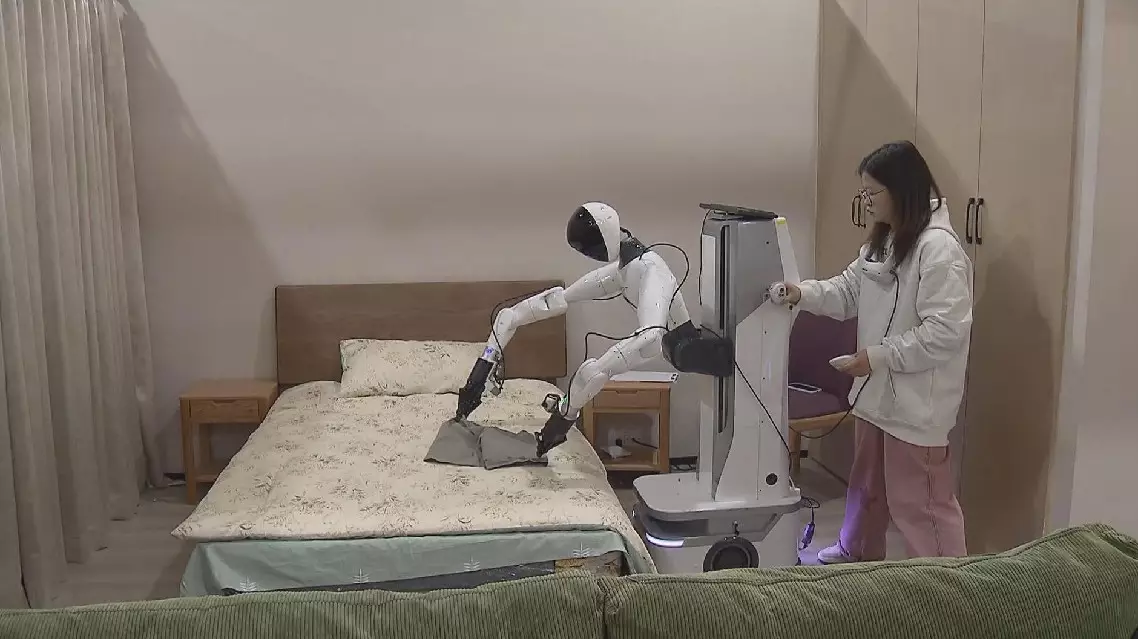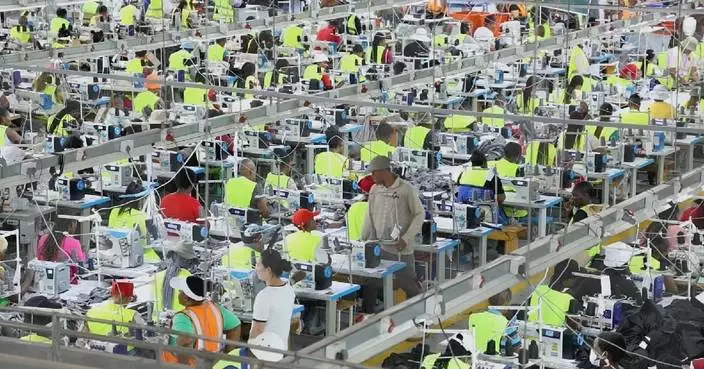China's Shanghai has made a major breakthrough in its leading humanoid robot industry, with the city's first mass production facility for humanoid robots now in commercial operation.
Located in the Lingang Fengxian Industrial Park, the factory is producing the "Yuanzheng A2" model, a nearly 1.7-meter-tall humanoid robot capable of various interactions with humans and suitable for home and exhibition settings.
Its developer, AgiBot, plans to produce nearly 1,000 robots from the factory by the end of this year.
The robot manufacturer has currently released five robot models covering areas such as interaction, heavy-duty transportation, data collection, research, and factory operations. The progress made in mass production also accelerates an entire industry chain in humanoid robots from research and development and testing to manufacturing and application.
AgiBot has set up one of the largest collection factory for embodied artificial intelligence (EAI) data -- the soul powering humanoid robots -- with hundreds of robots working simultaneously, producing tens of thousands of pieces of robot real machine data and simulation environment data per day.
"In the beginning, you definitely need to expose the robot to a wide variety of tasks so that it can iterate and grow based on data to train the robot's 'brain' and 'cerebellum'," said Shen Yongjian, head of embodied AI algorithm at AgiBot.
In recent years, multiple humanoid robot companies have mushroomed in Shanghai. The National and Local Co-Built Humanoid Robotics Innovation Center, located in Shanghai's Zhangjiang Inno Park has released China's first full-size general-purpose humanoid robot prototype.
Innovative companies like AgiBot, Fourier Intelligence, 21th Research Institute of China electronic technology group Corporation (CETC), and Kepler have also unveiled various general-purpose humanoid robot prototypes, achieving bipedal obstacle avoidance and securing commercial applications in multiple scenarios.
"I think Shanghai, even the Yangtze River Delta as a whole, has a big edge on robot key parts. The biggest advantage of Shanghai is its extremely abundant application scenarios, including its factories, education sector, services and entertainment. Therefore, Shanghai does own some unique advantages in the implementation of application scenarios and the training of vertical models of application scenarios," said Yan Weixin, co-founder of AgiBot, also a doctoral supervisor at the Institute of Robotics of Shanghai Jiao Tong University.
China has been actively promoting the humanoid robot industry, supported by government policies and the establishment of innovation centers.
According to a report released at the first China Humanoid Robot Industry Conference in April, the market for humanoid robots in China is expected to grow to 2.76 billion yuan (378 million U.S. dollars) in 2024 and reach 75 billion yuan (10.3 billion U.S. dollars) by 2029, accounting for 32.7 percent of the global total. By 2035, it is projected to reach 300 billion yuan (41 billion U.S. dollars).

Shanghai rolls out mass production of commercial humanoid robots









